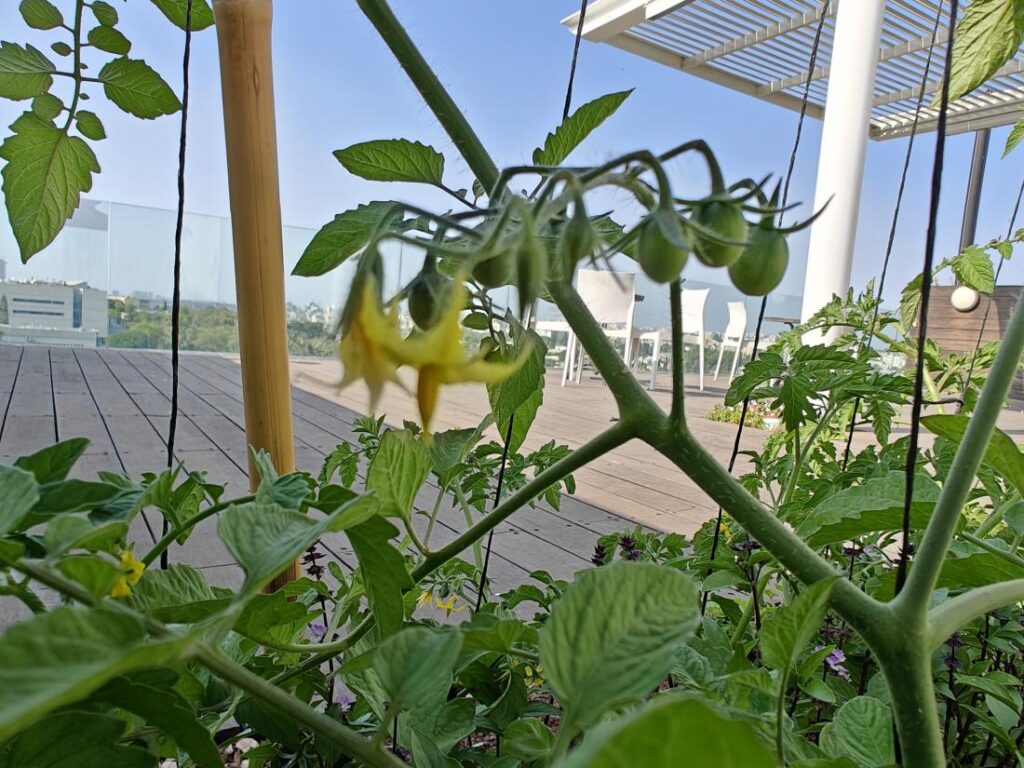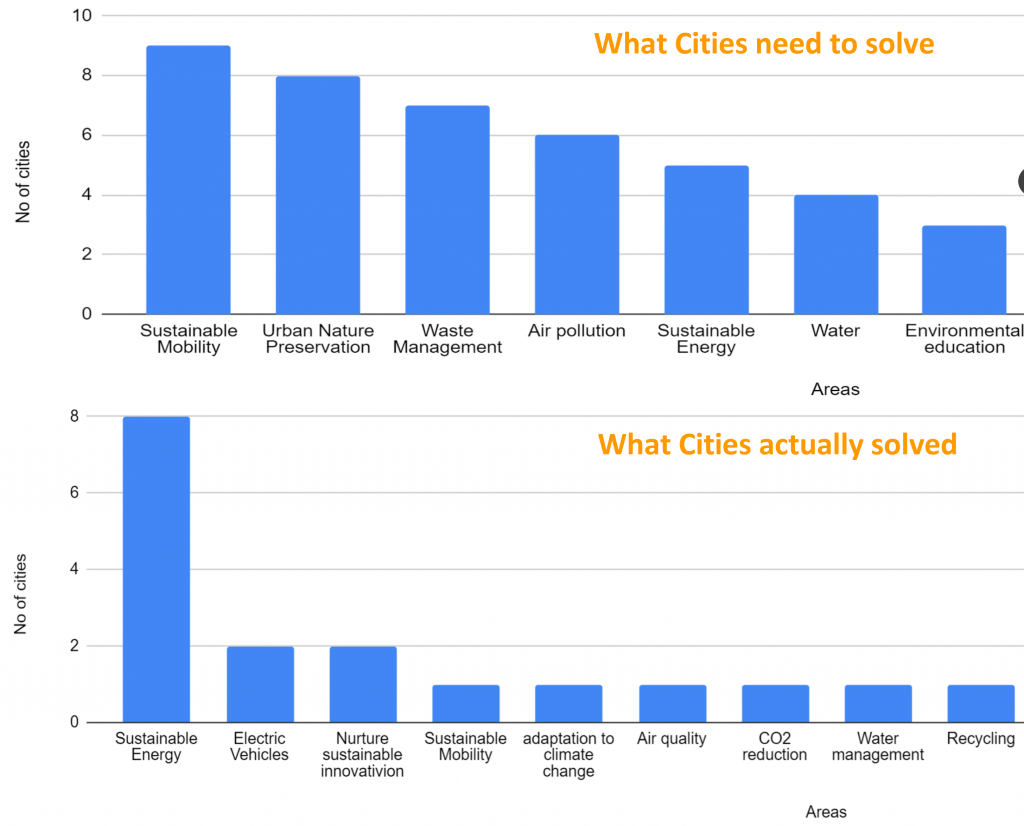
SME4SMARTCITIES promoted self-sufficient cities
Most cities rely on the supply of their energy, water, and food from external remote sources. This is increasing their ecological footprint and making them vulnerable to shortages in supply.
If cities could produce energy, supplies, and food in their own area, that would make them more sustainable and more resilient to environmental hazards. This was a major topic discussed at an SME4SMARTCITIES workshop that took place on the 15th December 2022 at the Porter School of the Environment and Earth Studies, at Tel Aviv University in Israel.
The Urban Challenges Identification Survey conducted by the project, a survey of 34 large and small cities across the Mediterranean, revealed the environmental challenges that the cities found more persistent, and the extent to which they already have adequate solutions for. The survey revealed that many cities focused on solving energy demand by turning to renewable energy production, but other challenges remained still at large, waiting for resolution.

At the SME4SMARTCITIES workshop, Prof. Alex Golberg, Head of the Dept. for Environmental Studies and of the Environmental Bioengineering Lab at the Porter School, Tel Aviv University, discussed novel concepts and solutions for renewable energy, natural water cycle, and innovative food supply chains.
What will replace fossil fuels in an area of accelerated human population growth? Renewable sourced energy is one solution, but the panoramic vision presented by Alex Golberg, connects nutrients and sunlight, robotic harvesting and new technologies change the way we generate food and energy, and create new jobs.
One of these solutions that were developed at the Environmental Bioengineering Lab, is the manufacturing of biofuels and bioplastics using sea algae. Many mediterranean cities are located on the sea front and can grow algae farms offshore. World seaweed production (CEVA) has been rising since 1960, with a boost from 6 million tons in 2000 to more than double today. Still, although constantly growing, the potential is far larger.
Oleg Missikoff, Co-Founder of Earth 3.0 Foundation discussed the topic of the smart energy community and distributed energy systems. Oleg Missikoff explained that we are caught in between high energy needs and the need to reduce the carbon footprint. The energy production, distribution and consumption model we have been accustomed to is already stretched to its limits. Solutions need to be found quickly. The Smart Energy Community model assist to achieve distributed production to substitute centralized production and provision. Direct benefits are huge reduction in energy costs, CO2 emissions and supply interruptions and increase in property value and diffusion of participatory and deliberative democracy, strengthening the social fabric in our communities.
Communities seem to be the solution for many energy problems, beyond production and distribution. Communities are the building blocks of our cities. They are the answer to having a two-way solution – producing energy locally while also lowering the need for energy by means such as green building and reducing the urban heat island.
For all aspects of required solutions –local energy production, foodtech solutions, urban agriculture on rooftops, vertical farming, water harvesting and others, innovative SMEs provide many solutions. Some are unique and extraordinary such as the facility for harvesting drinking water from air moisture, which was developed by Watergen, an innovative Israeli SME, and installed on the roof of the Microsoft Campus in Herzliya and on other locations worldwide.
ud Lazar, CEO of Herzliya Municipality, presented the city plans for sustainability and resilience, coupled with business growth in the city. “We have many companies that want to contribute to the environment”, said Ehud Lazar. The main employment area, which is the area chosen to implement the Herzliya Innovation Zone, is planned to be one of the first in Israel to be almost zero energy with a plan to save about 80% of energy compared to energy consumption in existing buildings.
The old central bus station of Herzliya, which was built in the late 1950s’, is being replaced with a new International Culture and Innovation Centre, A multidisciplinary centre, which will host cultural, educational and community activities, and will also serve as an innovative hub for climate research, development and technology.